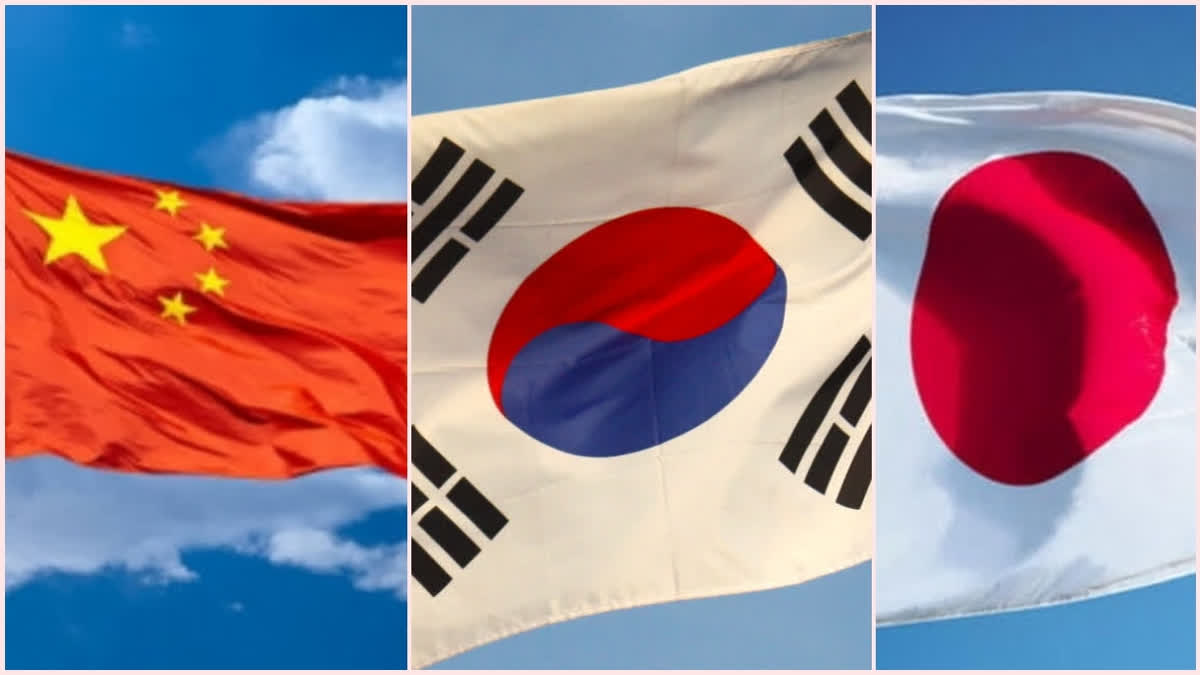New Delhi: With Seoul hosting this year’s China-South Korea-Japan Trilateral Summit, indications are that the three countries are trying to bring down temperatures in that part of the world. Chinese Premier Li Qiang, Japanese Prime Minister Fumio Kishida and South Korean President Yoon Sook Yeol attended the meeting following which a joint declaration was issued. The 38-point declaration called for peace and stability in Northeast Asia and the Korean Peninsula. During the meeting, China also urged Japan and South Korea to reject protectionism and uphold free trade. This was the ninth trilateral summit between China, Japan and South Korea and the first since 2019.
So, what was the significance of this year’s summit?
According to K Yhome, a Fellow at the Shillong-based Asian Confluence think tank, the joint declaration suggests that the three countries on May 28 are exploring ways to manage their relations in a way that is beneficial for the parties involved and also the wider region.
“This could be a diplomatic move by China and also Japan to bring some normalcy in the region,” Yhome told ETV Bharat.
China is in conflict with several Southeast Asian nations in the South China Sea with Taiwan over the island nation’s independence and with Japan on claims over the Senkaku Islands in the East China Sea. Meanwhile, tensions continue in the Korean Peninsula with North Korea’s actions threatening both South Korea and Japan.
Referring to the joint declaration issued following the trilateral summit, Yhome said that the scope of cooperation the three countries talk about today is quite elaborate. “We need to read this in the context of the increasing US-China rivalry in the Indo-Pacific,” he said.
The US is leading several initiatives, including the Quad, which also includes India, Japan and Australia in the face of China’s belligerence in the Indo-Pacific. Recently, a new alliance called the SQUAD comprising the US, Australia, Japan and the Philippines was formed to maintain peace and security in the region.
However, according to Yhome, through the trilateral summit, Tokyo might be trying to send a signal to Beijing that whatever Japan is for security in the region doing is not necessarily targeting China.
“Tokyo is saying that it is willing to work with Beijing for security in the region,” he said.
For China, the intent of this summit could be the Taiwan issue. New Taiwanese President Lai Ching Te has been increasingly vocal about his country defending its independence from China. Beijing, too, conducted a series of naval drills around Taiwan after the new government assumed power in Taipei.
“Also, because of the US’ increasing role in Taiwan, it is China’s way of saying that it is not interested in conflict in the region,” Yhome said. “Both Japan and South Korea are key actors in that part of the world.”
